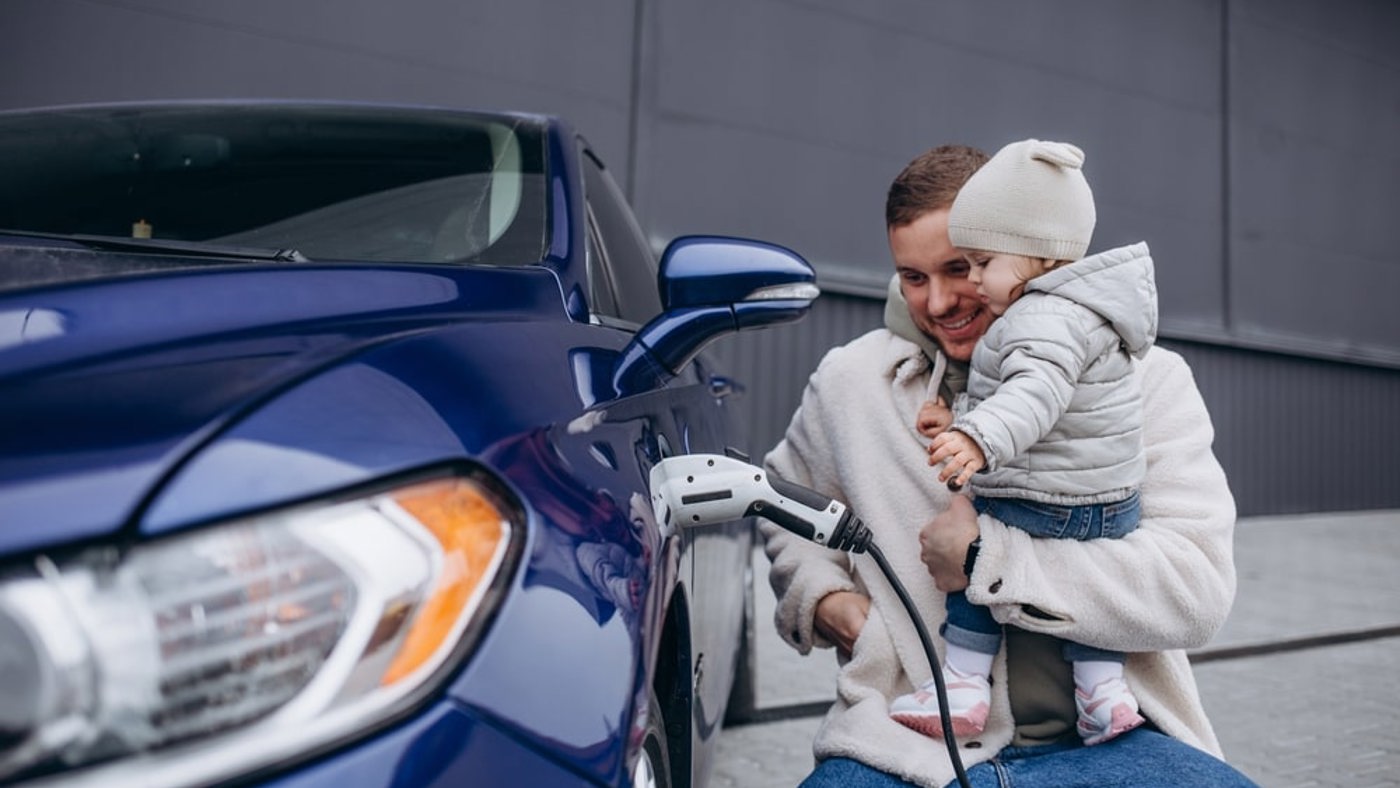
EV News: A carbon-free future with free EV charging and healthier children
Octopus Energy Sparks Revolution with UK's First Free EV Charging & V2G Tariff!
Octopus Energy is leading the charge with the launch of the UK's first-ever mass-market vehicle-to-grid (V2G) tariff – Octopus Power Pack! Here's what it means:
It works by allowing EV owners to fill up their cars when energy demand is low and then give back unused power to the grid at busy times.
Imagine being able to use the surplus energy stored in your EV's battery to light up your home or even earn some extra cash by selling it back to the grid during busy times, like when everyone's firing up their ovens for dinner.
Currently in beta, and only available to a limited number of V2G compatible cars and chargers the Octopus Power Pack tariff works as a bolt-on solution that separates charging costs from the rest of your home energy usage, running alongside your regular tariff.
Alex Schoch, head of flexibility at Octopus Energy, said: “We recently moved past a million EVs on UK roads – a major milestone – but their true power for storing energy remains untapped. Once we reach 10 million electric cars on the road, we’ll have enough storage to power the entirety of Great Britain during peak times. All our drivers have to do is plug in regularly and their charging is completely free.
“EVs are going to be a major lever in our future flexible, green grid, but to get there we need to unlock the capabilities of their batteries. Now we have Octopus Power Pack, it’s over to car manufacturers to build the cars that are compatible with V2G technology.
According to Octopus Energy, the average EV driver could save up to £850 per year in charging costs compared to a standard variable tariff. With energy bills being a huge part of most households' spending, this scheme is an exciting and mighty tempting reason for more people to switch to electric wheels.
HMRC Announces Revised Advisory Fuel Rates
Some important news for all fleet managers and drivers out there. HM Revenue and Customs (HMRC) has just dropped updated advisory fuel rates (AFRs), and they will take effect from Friday 1st March.
Fuel prices might be on the rise, but there are reduced rates for petrol and diesel company car drivers claiming back fuel costs, while the advisory electricity rate (AER) remains the same at 9 pence per mile (ppm)
These rates determine the reimbursement for business mileage in company cars and are crucial for calculating expenses accurately. So, whether you're managing a fleet or just keeping an eye on your fuel expenses as a driver, these updated advisory fuel rates are worth paying attention to.
Click here to see tables with a full list of the various rates.
EVs & Renewables: A Health Revolution for Future Generations!
Reports were released this week on the seismic health benefits awaiting our children as we shift towards EVs and renewable energy sources. Here's the scoop:
Research showcased by CleanTechnica demonstrates the profound impact of transitioning to EVs and renewable energy on public health. By ditching conventional vehicles and fossil fuels, we're not only reducing greenhouse gas emissions but also curbing harmful air pollutants like nitrogen oxides and particulate matter.
The science seems obvious: cleaner air means healthier kids. With EVs emitting zero tailpipe pollutants, we're poised to significantly decrease respiratory illnesses and improve overall air quality in urban areas.
Based on a model in which all new vehicles sold by 2035 have zero emissions, the group concludes that there would be 2.7 million fewer asthma attacks among children, as well as 147,000 fewer acute cases of bronchitis. The transition to EVs would also prevent 2.67 million cases of upper respiratory symptoms and 1.87 million cases of lower respiratory symptoms in children. There would also be 508 fewer cases of infant mortality, the Lung Association report claims.
Children particularly stand to gain a lot from this switch because they breathe more quickly than adults and breathe in more air in relation to their body weight than adults do. They are also often outdoors for longer and are usually more active so air quality is more impactful on their overall health.
Furthermore, embracing renewables such as solar and wind power amplifies these health benefits. By harnessing clean energy, we're slashing our carbon footprint and mitigating the devastating impacts of climate change, from extreme weather events to heat-related illnesses.
In essence, the switch to EVs and renewables isn't simply a trend; it's a pivotal moment in safeguarding the health of future generations. As we forge ahead, let's champion this transformative journey towards a cleaner, healthier world and a brighter future.
Edinburgh City Council Unveils New Electric Refuse Collection Fleet
Cool news from Edinburgh City Council which has just launched an exciting new project called "Green Bins Meet Vehicles."
This initiative is all about combining waste management and EVs to reduce carbon emissions and make our streets cleaner and greener. A match made in eco-heaven!
Edinburgh is home to more than 500,000 constituents and an impressive EV fleet of over 150 decarbonised cars, vans, and buses for the dedicated use of the council. With no plans to slow down anytime soon; they’ve set themselves the target of becoming a completely Net Zero city in the next six years.
The project involves using electric refuse collection vehicles that can charge up using energy from the city's green waste bins.
By integrating waste management with electric vehicles, the city is paving the way for more eco-friendly practices that could inspire other cities to follow suit. Plus, it's a great example of how technology can be used to tackle environmental challenges head-on.


